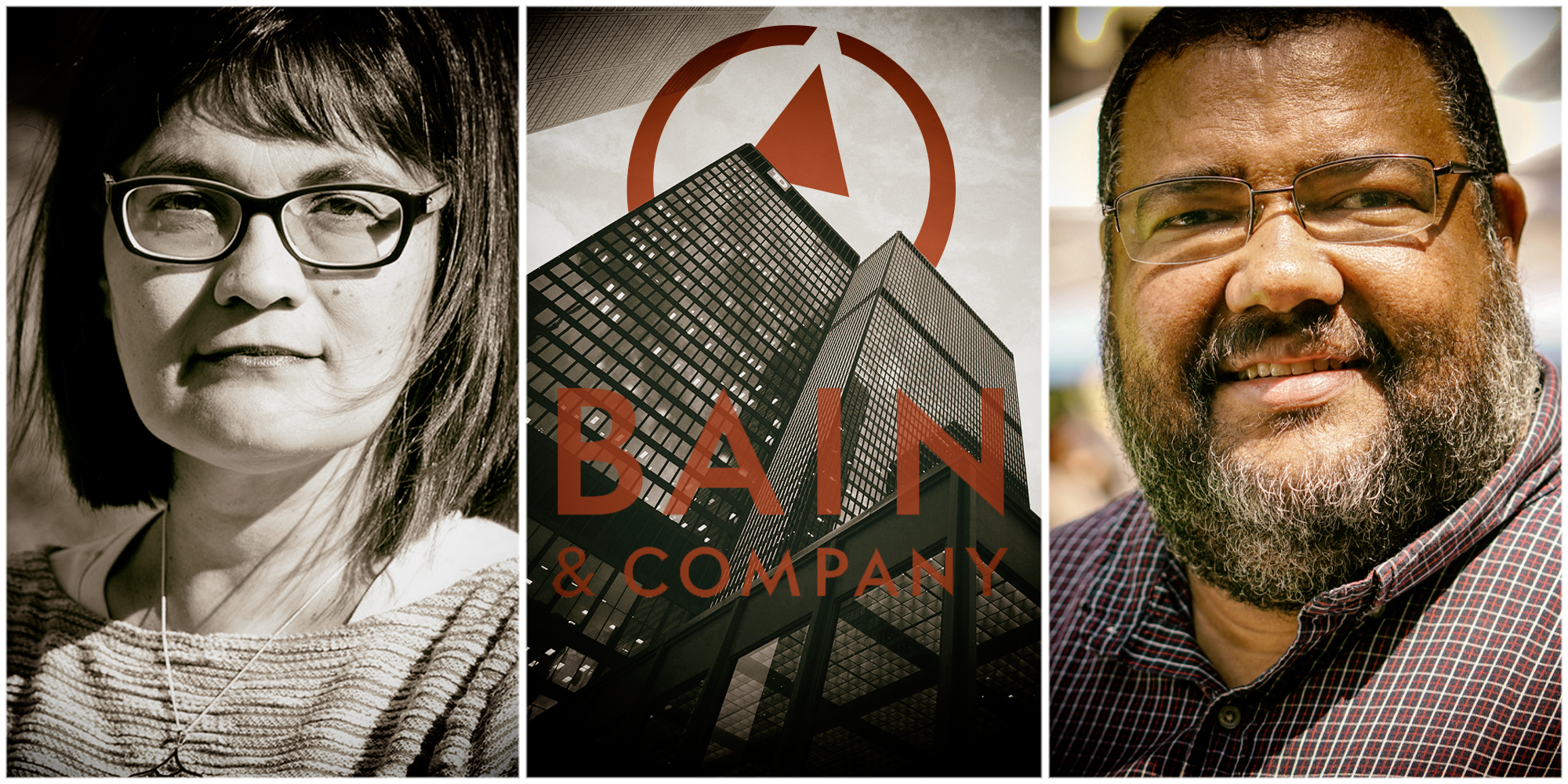Williams spoke to an online audience of nearly 400 from an undisclosed location on Thursday, 3 March, as he unpacked the corruption he bore witness to at his former employer, Bain & Co, where he was a senior partner. He broke down the management consultancy firm’s wrongdoings into two offences: their involvement in State Capture and the cover-up thereof.
“These were my friends, my mentors,” said Williams.
He explained that while he never witnessed the first offence, he directly witnessed the latter. Bain brought Williams back on board in 2018 to oversee its internal investigations, when premature word was getting out of the US-based firm’s potential involvement in breaking down the South African Revenue Service (SARS).
In this position, Williams received documents that pointed to Bain’s involvement in State Capture, and wrongdoings that the firm seemingly expected Williams to cover up. As he explained, his contract clearly stipulated that he was brought on to “do what is right for SA”.
“That is what I stuck to,” said Williams succinctly.
The corruption that these documents exposed was multifaceted, and exposed a concerning relationship between former president Jacob Zuma and Bain. Williams recalled that the firm was meeting with the president up to 18 times every six weeks, which raised red flags in and of itself.
Discussions during these meetings apparently covered Cabinet reshuffles, ANC manifesto revisions, decisions on the number of ministers appointed and their compensation, and the restructuring of economic sectors – SARS being “one of many outputs of that plan”.
Williams clarified here that knowledge of tampering with SARS was only exposed to the public because it affected the organisation’s ability to collect taxes. What is of greater concern now is corruption within other Bain-affiliated organisations, such as Telkom.
During the webinar hosted by governance specialist Judith February, he further made an important distinction regarding Bain’s culpability in the matter, which it attempted to sidestep as events it was not aware of. Williams urged the audience to think of Bain separately from its industry peers, since it was uniquely involved in the execution of State Capture plans, and “the only firm that was Zuma’s consultant of choice”.
Despite its efforts to bribe and silence Williams, he resigned within three months of being brought on and approached the Zondo Commission with 500 documents as evidence of Bain’s withholding of information and lack of full disclosure to the commission.
Speaking to the current state of things in the wake of him blowing the whistle on this corruption, Williams said he is “outraged” that Bain still operates within the country.
“They’re booming,” he exclaimed, citing the fact that Bain has nearly doubled its partners since its corruption was exposed.
https://www.dailymaverick.co.za/article/2022-02-24-institute-a-ban-on-bain-working-for-any-public-sector-organisation-in-england/
He lamented the fact that companies like Sasol have gone on to hire Bain & Co, spending “hundreds of millions” on the firm. To this point, Williams urged the South African public to not be apathetic to these events, and to hold companies like Sasol accountable in the same way that Shell was after its environmentally corrosive practices were condemned.
Accountability does not end with companies associated with Bain, according to Williams, who said that the firm’s legal adviser, McKinsey, must answer questions too. Even President Cyril Ramaphosa must say whether or not he hired Bain after the Nugent Commission initially found Bain’s and Tom Moyane’s actions to be a premeditated offensive against SARS.
Speaking directly to his life as a whistle-blower, Williams broke down in front of his audience.
“It’s difficult to talk about; my life doesn’t make sense,” he said through tears. “I’ve worked hard… I saw something wrong in our country and I spoke up, so why am I now begging (for help)?”
Williams explained that he has been forced into hiding for his safety since coming forward in 2019, leaving him with no source of income, a splintered family, and severed ties with his country.
Williams, who was forced to resign from his senior lecturing position at UCT, where he taught business ethics, called for whistle-blower reform. He explained he has received no support from private and public institutions in South Africa, including the Presidency, to which he has written a number of times.
He described feeling “terrified” that the severity of the situation is being lost on everyday South Africans, as Bain has “tentacles” that reach across sectors and even countries. “South Africans need to act and say they want their country back,” he declared.
While it remains to be seen if accountability will come down on Bain & Co and those implicated in this corruption, such as the Guptas and Duma Ndlovu, according to Williams, the whistle-blower spends his days “soul searching” and grappling with his decision to stick to his ethical mandate. “I have to face my family as this loser who was willing to do this,” he remarked, explaining how uncertain his future is at this moment. “My country turned its back on me as I did that.” DM
South Africa
Bain & Co whistle-blower Athol Williams: ‘South Africans need to act and say they want their country back’





